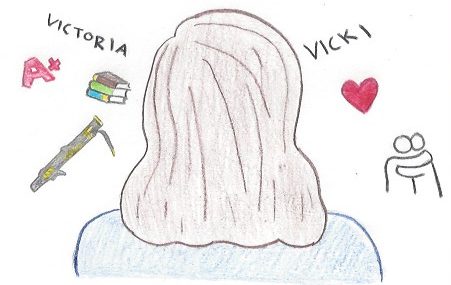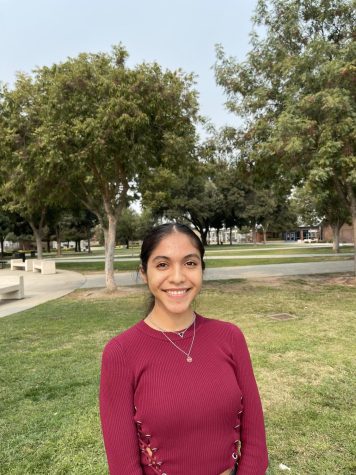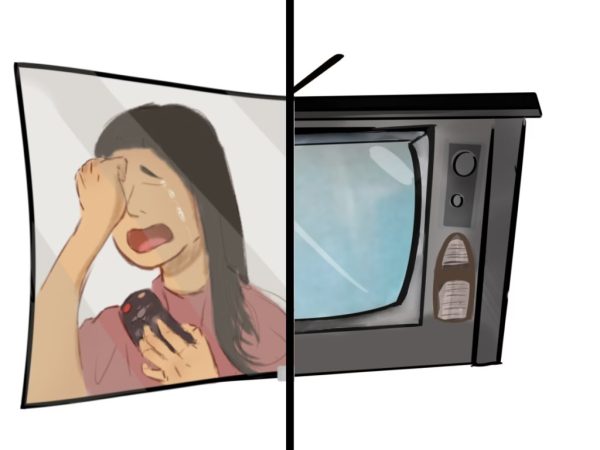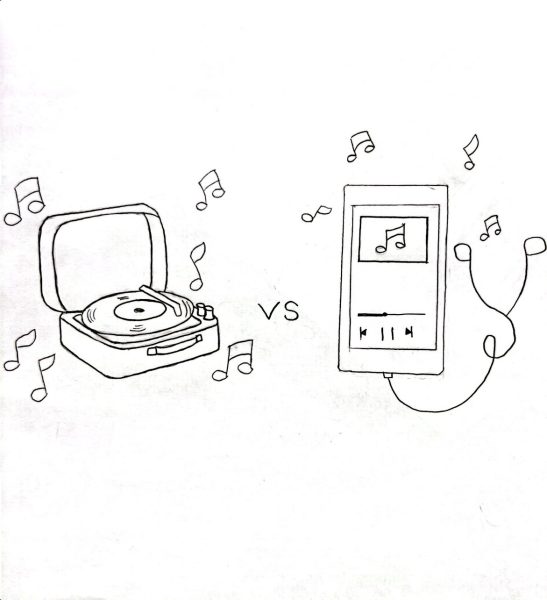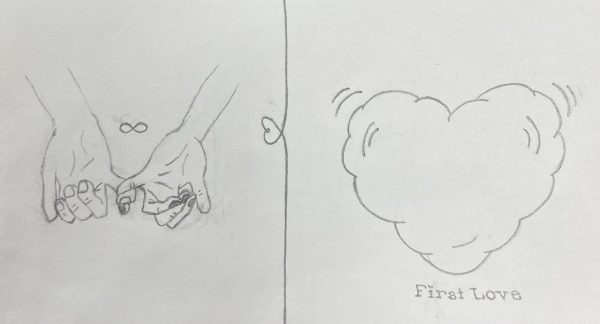Te Quiero Mucho
April 8, 2022
“Te quiero mucho,” she said as she dropped me off at school for the very first time.
I didn’t cry, as most four year olds do. I didn’t look back. I walked with my head up high, blind to the future pains I would face. But I didn’t even know my name.
My nickname is Vicki. In my household, this is my one and only name. I have never once heard either of my parents call me Victoria. So when I went to school for the first time, this name, this sound was very odd. Worse, the name Victoria in English is so… anticlimactic. In Spanish, Victoria sounds more like the force of a million suns coming down on Icarus. In Spanish, I feel more real. Or at least I used to.
My primary language is Spanish. My very first word was “taco” or at least that’s what my father says. But the truth is, I never did utter many words and to this day, I am very quiet. I observe from a distance and make judgments in my head.
When I was a kid, I observed my peers as they spoke English. I studied their mannerisms, I made mental notes every day, and I translated their words from English to Spanish. But I myself didn’t dare speak English. The vowels felt wrong, the words seemed to mock me, and the taste of English was so bitter. Most of the class was also Hispanic and I consistently did well on my spelling tests, so it didn’t seem to really matter that I didn’t speak the language.
One day on what she would call “Fun Friday,” my kindergarten teacher looked at me with the strongest eyes of pity and in Spanish said, “You must speak English when you’re in school. When you get home, puedes hablar Español, but not here.”
It’s not like she was a bad teacher. It’s not like she wasn’t Mexican as well. It’s not like she didn’t initiate positive reinforcements about the way I spoke English. Looking back at it, she was probably trying to make my life a little easier. If I assimilated to white culture, and spoke the language, I would be left alone by racists… right?
Instead what she did was establish a long lasting feeling of inferiority, a feeling that has yet to go away.
Today, I write and speak English most of the day. Today, Victoria is a common sound, a decent sound. But Victoria is not white, and although she has found a place in this silly little high school, the superiority of her peers still lingers.
When my light skinned friends know more than one language, it is admirable. And as a bilingual human, it IS admirable. It is not easy to constantly translate things in your head. But when I speak Spanish, I am met with the biggest looks of disgust, as if their eyes spoke, “go back to your country!”
Why is it that we romanticize languages like French and Italian but condemn languages that are not Eurocentric? Even British English is more desired than American English.
As I get ready to leave for college, I am met with the financial burdens of having to find the money to pay for my tuition. Good thing there are scholarships right?
A lot of the scholarships I wished to apply to are not available to me because my parents were not involved in the meetings of programs and schools I attended. I made my mom go to one of these meetings when I was in middle school, and as I sat next to her, I saw the same feeling of inferiority I’ve felt over the years creep into her eyes.
She did not speak English, she did not have extra money she could donate, she did not have the resources to offer these schools and programs that perhaps other parents did. And so I watched her shrink into her chair and listen to the words she didn’t understand, waiting for that meeting to be over. I did not bug her again after that.
Today, Vicki and Victoria live different lives. Vicki is a good daughter, a sister, a passionate human, and most of all lonely. Victoria gets the grades, writes the articles, makes the “good impressions” her teachers admire her for. But to be honest, I like Vicki better and I am so afraid that she will die once I leave the Valley.
Te quiero mucho Vicki, but you must stop changing yourself for the approval of society. Tienes que dejar que Victoria pierda de vez en cuando. Para cualquiera que necesita escuchar esto, no dejes que te quiten tu idioma.
